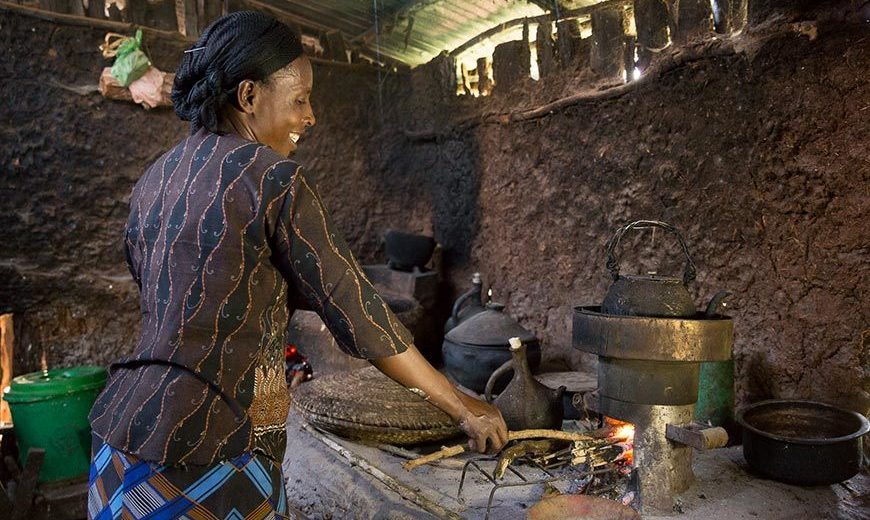Explanatory documents
Fact sheet introducing Fairtrade Carbon Credits:
EN | Fact sheet
Pricing methodology document with information on how the Fairtrade Minimum Prices for Fairtrade Carbon credits were calculated:
Fairtrade International developed the Fairtrade Climate Standard, as a way to support smallholders and rural communities to produce Fairtrade Carbon Credits and gain access to the carbon market.

Fairtrade Carbon Credit projects enable producers to make their contribution to climate change mitigation while adapting to climate change.
The Fairtrade Climate Standard was developed in collaboration with the Gold Standard, an internationally recognized organization with expertise in climate and development projects. The Fairtrade Climate Standard is an add-on standard to Gold Standard certification of carbon emissions reductions and sustainable development benefits.
To find out what the Fairtrade Minimum Prices and Premiums for Fairtrade Carbon Credits are, see the pricing database.
This standard applies to all Fairtrade certified operators producing and trading in Fairtrade Carbon Credits and is valid from 1 October 2015.
EN | Fairtrade Climate Standard
Fact sheet introducing Fairtrade Carbon Credits:
EN | Fact sheet
Pricing methodology document with information on how the Fairtrade Minimum Prices for Fairtrade Carbon credits were calculated:
The Fairtrade Climate Standard applies to: Fairtrade Carbon Credit (FCC) producer organizations; project facilitators, who can support the producer organizations to implement the projects; traders, who buy and sell on the FCCs; and end buyers, who buy the FCCs to compensate their carbon emissions.
FCC traders do not need to additionally comply with the Fairtrade Trader Standard; all requirements for all FCC operators, including traders, are in this standard.
Fairtrade carbon projects focus on one of the following areas: energy efficiency; renewable energy; and afforestation/reforestation.
Projects must make use of approved carbon calculation methodologies, as detailed below: